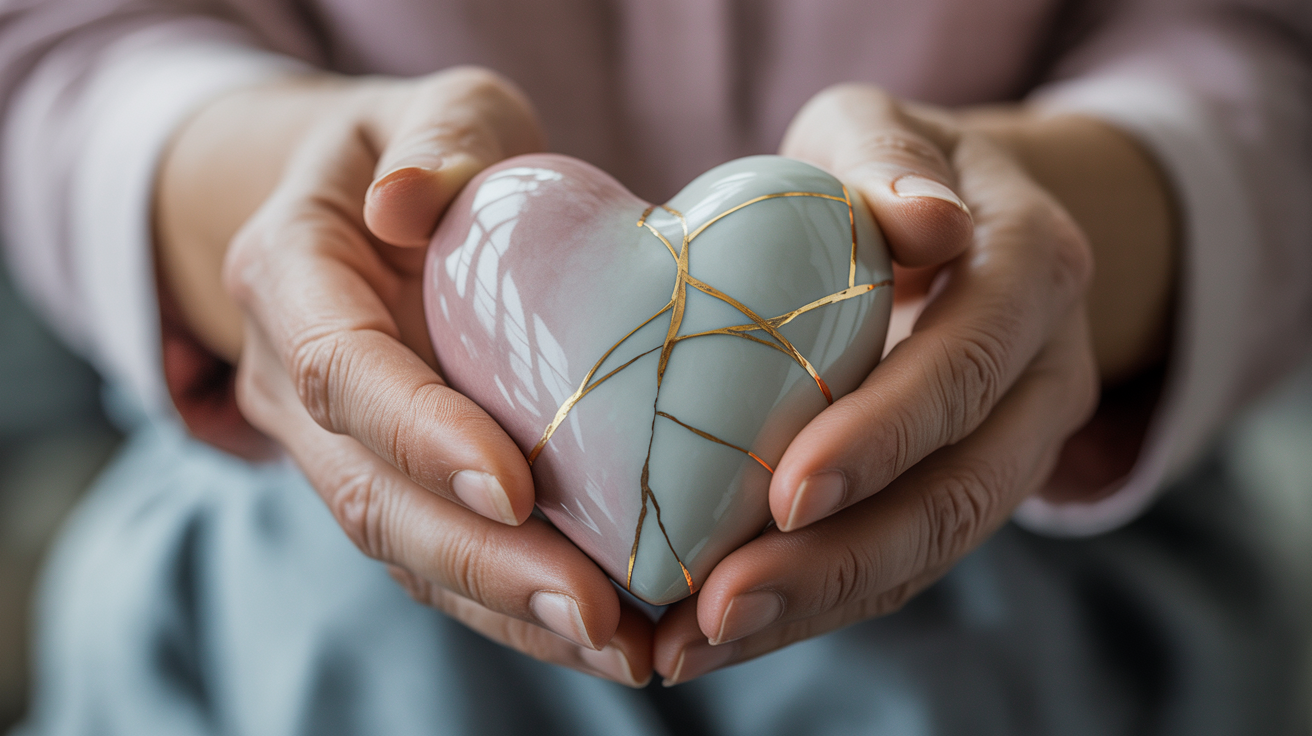
The More You Know Yourself, the Easier It Is to Love Yourself
Most people struggle with self-love because they’re trying to love a version of themselves they’ve never truly met. They know their surface preferences and daily routines, but they remain strangers to their deeper motivations, fears, and authentic nature. This disconnect creates a painful cycle where self-criticism fills the space that self-understanding should occupy.
Self-knowledge isn’t just about knowing your favorite color or preferred coffee order. It’s about understanding your emotional patterns, recognizing your triggers, honoring your values, and accepting your complete human experience. When you truly know yourself, self-love becomes not just possible but inevitable.
The journey from self-judgment to self-acceptance transforms every area of your life. Your relationships improve when you understand your attachment patterns. Your career flourishes when you align with your authentic strengths. Your mental health stabilizes when you can meet your own emotional needs with compassion.
Why Self-Knowledge Is the Foundation of Self-Love
Imagine trying to love someone you’ve only met in passing. You might feel sympathy or general goodwill, but deep love requires intimate knowledge. The same principle applies to your relationship with yourself. Genuine self-love grows from the soil of self-understanding.
Most people operate from a surface-level awareness of who they are. They know their job title, their relationship status, and their basic preferences. But they remain mysteries to themselves when it comes to understanding why they react certain ways, what they truly need to feel fulfilled, or how their past experiences shape their present choices.
This shallow self-awareness creates several problems that block self-love. Without understanding your triggers, you judge yourself harshly when you react emotionally. Without recognizing your patterns, you repeat the same mistakes and feel frustrated with yourself. Without knowing your authentic values, you pursue goals that don’t fulfill you and wonder why success feels empty.
Self-knowledge illuminates the “why” behind your thoughts, feelings, and behaviors. When you understand that your anxiety stems from childhood experiences of instability, you can respond with compassion instead of criticism. When you recognize that your perfectionism is actually a strategy to feel worthy of love, you can address the underlying need with kindness.
The Difference Between Self-Awareness and Self-Knowledge
Many people confuse self-awareness with self-knowledge, but they’re distinctly different levels of understanding. Self-awareness means noticing what’s happening in your internal experience: “I’m feeling angry right now” or “I’m having anxious thoughts.” This awareness is valuable but remains at the surface level.
Self-knowledge goes deeper into the patterns, connections, and underlying dynamics that shape your experience. It means understanding not just that you feel angry, but recognizing what specific situations trigger your anger, how your body holds that emotion, what stories you tell yourself when angry, and how your anger connects to deeper needs or values.
Self-knowledge also includes understanding your personal history and how past experiences influence present reactions. It involves recognizing your defense mechanisms, understanding your attachment style, and seeing the unconscious beliefs that guide your choices.
This deeper level of understanding creates the foundation for genuine self-compassion. When you know why you developed certain patterns or reactions, you can appreciate the wisdom of your psyche in trying to protect you, even when those strategies no longer serve you.
The Connection Between Understanding and Acceptance
One of the most profound shifts in developing self-love happens when you move from judging your experiences to understanding them. Every behavior, every emotion, every reaction makes sense when you understand the context that created it.
Take the example of someone who struggles with people-pleasing. From the outside, this behavior might seem weak or inauthentic. But when you understand that people-pleasing often develops as a survival strategy in childhood environments where love felt conditional, it becomes a testament to your adaptability and desire for connection.
This doesn’t mean accepting harmful behaviors without change. Instead, it means approaching yourself with the same compassion you’d offer a good friend who was struggling. You can acknowledge the wisdom behind your patterns while also recognizing when it’s time to develop new approaches.
Understanding your defensive patterns allows you to appreciate their original purpose while consciously choosing whether they still serve you. The part of you that withdraws when criticized was once trying to protect you from emotional harm. The part that overworks was once trying to ensure your security. When you see these patterns as protective rather than problematic, you can work with them more skillfully.
How Self-Knowledge Dissolves Self-Criticism
Self-criticism thrives in the absence of understanding. When you don’t know why you react certain ways or make certain choices, it’s easy to conclude that something is fundamentally wrong with you. Knowledge replaces the harsh inner critic with a compassionate inner witness.
Consider someone who beats themselves up for being “too sensitive.” Without self-knowledge, they might try to suppress their sensitivity or judge themselves for having strong emotional reactions. But with deeper understanding, they might recognize that their sensitivity is actually a gift that allows them to connect deeply with others and notice subtleties that others miss.
The shift from criticism to understanding doesn’t happen overnight, but it begins with curiosity. Instead of asking “What’s wrong with me?” you learn to ask “What’s going on for me right now?” This simple change in questioning opens space for exploration rather than condemnation.
Self-knowledge also reveals the positive intentions behind seemingly negative behaviors. The person who procrastinates might discover they’re actually trying to protect themselves from the pain of potential failure. The person who avoids commitment might realize they’re honoring their need for freedom and autonomy.
Practical Ways to Deepen Self-Knowledge
Developing self-knowledge requires intentional practices that help you observe your inner world with curiosity and compassion. The following approaches provide concrete ways to understand yourself more deeply.
Journaling for Self-Discovery
Stream-of-consciousness writing creates a direct pathway to understanding your unconscious thoughts and feelings. Set a timer for 10-15 minutes and write continuously without editing or censoring yourself. Let whatever comes to mind flow onto the page.
This practice often reveals thoughts and feelings you weren’t consciously aware of. You might discover underlying worries, unacknowledged desires, or patterns you hadn’t recognized. The key is writing without judgment or trying to make it “good” writing.
Prompt-based journaling can help you explore specific aspects of your inner world. Some powerful questions for self-discovery include:
What situations make me feel most alive and energized? When do I feel most like myself? What patterns do I notice in my relationships? What fears hold me back from pursuing what I want? What values feel most important to me, and how do I honor them in daily life?
Emotional tracking helps you understand your feeling patterns over time. Each day, note your primary emotions and what triggered them. After a few weeks, you’ll start seeing patterns in what affects your emotional state and how you typically respond to different situations.
Body Awareness and Somatic Intelligence
Your body holds tremendous wisdom about your authentic self. Physical sensations often provide information about your emotional and psychological state before your mind becomes consciously aware.
Practice body scanning throughout the day. Take a moment to notice physical sensations without trying to change them. Where do you hold tension? What does your posture communicate about your emotional state? How do different environments or people affect your physical comfort?
Breathing patterns also reveal important information about your internal state. Shallow breathing might indicate anxiety or stress. Held breath might suggest you’re bracing against difficult emotions. Deep, relaxed breathing often accompanies feelings of safety and authenticity.
Learning to read your body’s signals helps you understand your needs and boundaries more clearly. Your body might tense up around certain people, signaling that this relationship requires extra attention to your boundaries. You might feel energized in certain environments, indicating activities or settings that align with your authentic self.
Exploring Your Personal History
Understanding your past helps explain your present patterns without getting stuck in blame or victimhood. Your history shaped you, but it doesn’t define your future possibilities.
Family patterns often unconsciously influence your adult relationships and choices. What emotional dynamics characterized your family growing up? How did your family handle conflict, express affection, or deal with stress? Which family patterns do you see yourself repeating or rebelling against?
Significant life experiences create lasting impacts on your worldview and coping strategies. What experiences taught you important lessons about yourself or life? Which relationships shaped your understanding of love and connection? What challenges helped you discover your strength and resilience?
Cultural and social influences also contribute to your sense of self. What messages did you receive from your culture about success, relationships, and self-worth? Which of these messages align with your authentic values, and which feel imposed from outside?
This exploration isn’t about dwelling on the past but about understanding how your experiences created your current patterns of thinking, feeling, and behaving.
Understanding Your Emotional Landscape
Emotions provide crucial information about your needs, values, and boundaries. Developing emotional literacy means learning to read your feelings like a sophisticated internal guidance system.
Many people learned early in life to suppress, ignore, or judge their emotions. This creates a disconnection from valuable information about what matters to you and what you need to thrive. Rebuilding your relationship with emotions is essential for self-knowledge and self-love.
The Wisdom of Difficult Emotions
Every emotion, even the uncomfortable ones, carries important information. Anger often signals that your boundaries have been violated or your values have been disrespected. Instead of judging your anger as “bad,” you can appreciate it as your psyche’s way of protecting what matters to you.
Sadness indicates that you’ve experienced a loss or that something meaningful has ended. This emotion helps you process change and often contains appreciation for what was valuable in what you’ve lost.
Fear alerts you to potential threats or challenges. While fear can sometimes be disproportionate to actual danger, it often highlights areas where you feel vulnerable or unprepared. Understanding your fears helps you identify what you need to feel safe and confident.
Shame is perhaps the most challenging emotion to befriend, but it often points to areas where you feel disconnected from your authentic self or your values. When approached with compassion, shame can guide you back to alignment with who you really are.
Learning to welcome all emotions without being overwhelmed by them requires practice and patience. The goal isn’t to eliminate difficult emotions but to develop the capacity to feel them fully while maintaining your equilibrium.
Recognizing Your Emotional Patterns
Most people have predictable patterns in how they experience and express emotions. Understanding your emotional patterns helps you respond more consciously instead of being swept away by automatic reactions.
Notice what situations consistently trigger strong emotions for you. Do you feel anxious in social situations? Angry when you feel controlled? Sad when you feel disconnected from others? These patterns reveal important information about your core needs and values.
Pay attention to how you typically express different emotions. Do you withdraw when hurt? Become aggressive when scared? Shut down when overwhelmed? Understanding your expression patterns helps you communicate your needs more effectively and choose healthier responses.
Emotional cycles also provide valuable self-knowledge. You might notice that you feel more sensitive during certain times of the month, more optimistic in the morning, or more reflective in the evening. Working with your natural emotional rhythms instead of against them improves your overall well-being.
Discovering Your Authentic Values and Desires
Many people live according to values they inherited from family, culture, or society without ever questioning whether these values truly resonate with their authentic self. Discovering your genuine values is essential for self-love because it allows you to honor what truly matters to you.
Values aren’t abstract ideals but living principles that guide your choices and give your life meaning. When your daily actions align with your authentic values, you experience a sense of integrity and self-respect that forms the foundation of self-love.
Values Versus Expectations
The first step in discovering your authentic values is distinguishing between what you genuinely value and what you feel you should value. Inherited expectations often masquerade as personal values, creating internal conflict and self-judgment when you can’t live up to standards that don’t truly resonate with you.
For example, you might have grown up believing that financial success is the most important goal in life. But if your authentic values center around creativity, connection, or service, pursuing money at the expense of these deeper values will leave you feeling empty and disconnected from yourself.
Values clarification requires honest self-examination. What activities make you feel most alive and purposeful? When do you feel proud of yourself? What would you regret not exploring or expressing in your life? These questions help identify your authentic values beneath layers of conditioning and expectation.
Living according to your genuine values creates self-respect, which is a crucial component of self-love. When you honor what truly matters to you, even when it’s challenging or unpopular, you build trust with yourself and develop the integrity that supports healthy self-regard.
Understanding Your Deeper Desires
Beyond surface-level wants and preferences lie deeper desires that reflect your soul’s longing for expression and fulfillment. These authentic desires often feel vulnerable to acknowledge because they reveal what matters most to you.
Many people suppress their deeper desires because they seem impractical, selfish, or impossible to achieve. But understanding these desires is crucial for self-knowledge because they point toward your authentic path of growth and contribution.
Your desires might include longing for creative expression, deep intimacy, adventure, service to others, or spiritual connection. These aren’t childish wishes but authentic aspects of your nature seeking expression. When you acknowledge and honor these desires, you align with your authentic self.
The key is distinguishing between desires that come from your authentic self and those that come from ego or social conditioning. Authentic desires usually feel expansive and life-giving, even when they challenge you to grow. Ego-driven desires often feel grasping or empty, focused on external validation rather than genuine fulfillment.
The Role of Self-Compassion in Self-Knowledge
Developing self-knowledge requires approaching yourself with the same kindness you’d offer a beloved friend. Self-compassion creates the emotional safety necessary for honest self-exploration.
Without self-compassion, the process of getting to know yourself becomes another opportunity for self-criticism. You might judge what you discover about your fears, shame yourself for your past mistakes, or attack yourself for having needs and vulnerabilities. This harsh approach blocks the very intimacy with yourself that you’re trying to create.
Self-compassion involves treating yourself with kindness, recognizing your common humanity, and holding your experiences with mindful awareness rather than judgment. When you approach self-discovery from this compassionate stance, you create space for your full humanity to be seen and accepted.
Practicing Self-Forgiveness
Self-forgiveness is an essential skill for deepening self-knowledge and self-love. You cannot fully know and love yourself while carrying heavy judgments about your past choices and mistakes.
Forgiveness doesn’t mean condoning harmful behavior or pretending mistakes didn’t happen. Instead, it means releasing yourself from the prison of self-punishment and choosing to relate to your past with understanding rather than condemnation.
The practice of self-forgiveness often begins with understanding the context of your past choices. What were you trying to achieve or protect when you made decisions you now regret? What resources or knowledge did you lack at the time? How were you doing the best you could with your level of consciousness and available options?
This understanding doesn’t excuse harmful behavior but humanizes it, making it possible to learn from mistakes without being defined by them. When you can forgive yourself for being imperfect, you create space for growth and self-acceptance.
Embracing Your Imperfections
Perfect self-love isn’t about achieving perfection but about embracing your complete humanity, including your flaws, quirks, and limitations. Your imperfections are often the most endearing and relatable aspects of your personality.
The Japanese concept of wabi-sabi celebrates the beauty of imperfection and impermanence. This philosophy can transform your relationship with your own flaws from shame to appreciation. Your sensitivity might make you vulnerable but also deeply empathetic. Your stubbornness might create problems but also demonstrate your commitment to your values.
Learning to love your imperfections doesn’t mean avoiding growth or accepting harmful patterns without change. Instead, it means approaching your limitations with curiosity and kindness rather than harsh criticism. You can work to improve while still appreciating yourself as you are right now.
How Self-Love Transforms Your Life Experience
When you develop genuine self-love through deep self-knowledge, it creates ripple effects that transform every area of your life. Self-love isn’t a destination but a way of being that influences how you navigate relationships, challenges, and opportunities.
Your relationship with yourself sets the template for all your other relationships. When you know and love yourself, you can be authentic in your connections with others. You don’t need others to complete you or validate your worth because you have a solid foundation of self-acceptance.
Boundaries become clearer when you know what you need and value your own well-being. You can say no to requests that don’t align with your values or capacity without feeling guilty. You can ask for what you need without feeling selfish or demanding.
Decision-making improves dramatically when you understand your authentic values and desires. Instead of constantly seeking external validation or trying to meet others’ expectations, you can make choices based on what genuinely serves your highest good and deepest values.
Building Resilience Through Self-Understanding
Self-knowledge creates emotional resilience by helping you understand your patterns and develop effective coping strategies. When you know what triggers your anxiety, you can prepare for challenging situations or remove unnecessary stressors from your life.
Understanding your emotional patterns also helps you recognize that difficult feelings are temporary and manageable. You’ve survived challenges before, and you can navigate current difficulties by drawing on your self-knowledge and inner resources.
Self-love provides the emotional foundation that allows you to take healthy risks and pursue meaningful goals. When you know you’ll treat yourself with kindness regardless of outcomes, you’re more willing to step outside your comfort zone and grow.
This doesn’t mean becoming reckless or ignoring real dangers. Instead, it means trusting yourself to handle whatever life brings while making choices aligned with your authentic self rather than from fear or others’ expectations.
Practical Steps to Know and Love Yourself More Deeply
The journey of self-knowledge and self-love is ongoing, but you can begin today with simple practices that deepen your understanding and acceptance of yourself.
Create Space for Self-Reflection
Daily reflection practices help you stay connected to your inner world amidst life’s busyness. This might involve morning pages, evening journaling, meditation, or simply taking quiet walks without distractions.
The key is consistency rather than duration. Even five minutes of daily self-reflection can significantly deepen your self-awareness over time. Use this time to check in with your emotional state, notice your thoughts, and observe your reactions to recent experiences.
Weekly or monthly deeper reflection allows you to identify patterns and themes in your experience. What emotions showed up most frequently? What situations brought you energy versus draining you? What choices aligned with your values, and where did you compromise your authenticity?
Seek Feedback from Trusted Others
Sometimes others can see patterns or qualities in us that we’re blind to ourselves. Trusted friends, family members, or mentors can provide valuable perspectives on your strengths, patterns, and growth areas.
Ask people who know you well: What qualities do you see in me that I might not recognize? What patterns do you notice in how I handle different situations? When do I seem most authentically myself? This external feedback can illuminate blind spots and confirm insights you’re developing about yourself.
Professional support through therapy, coaching, or spiritual direction can also accelerate your self-discovery journey. These trained professionals can help you explore your patterns, understand your history, and develop greater self-compassion.
Practice Authentic Self-Expression
You discover more about yourself by expressing your authentic thoughts, feelings, and creativity. Creative practices like writing, art, music, or movement often bypass mental defenses and reveal aspects of your inner world.
Don’t worry about being good at these creative expressions. The goal is discovery, not performance. Notice what themes emerge in your creative work, what feels satisfying to express, and how different forms of creativity affect your mood and energy.
Honest communication in your relationships also deepens self-knowledge. When you practice expressing your real thoughts and feelings instead of saying what you think others want to hear, you learn more about your authentic perspectives and needs.
The Ongoing Journey of Self-Discovery
Understanding and loving yourself is not a project you complete but a lifelong journey of deepening intimacy with your own soul. You are a complex, evolving being, and there will always be new depths to explore and appreciate.
This ongoing nature of self-discovery means you can approach the journey with patience and curiosity rather than urgency or pressure. Each stage of life brings new challenges and opportunities that reveal different aspects of your character and capacity.
The person you are today is both continuous with who you’ve always been and different from who you were yesterday. Embracing this paradox allows you to honor your core essence while remaining open to growth and change.
Your relationship with yourself will have seasons just like any intimate relationship. Sometimes you’ll feel deeply connected to yourself and clear about your direction. Other times you might feel confused or disconnected from your authentic self. Both experiences are normal and valuable parts of the journey.
Self-love isn’t about maintaining constant positive feelings about yourself but about staying committed to treating yourself with kindness and understanding through all of life’s experiences. This commitment creates the safety and trust necessary for ongoing self-discovery.
The more you know yourself, the more you have to love. Every quality you discover, every pattern you understand, every wound you heal with compassion adds depth to your relationship with yourself. This growing intimacy with your own soul becomes the foundation for a life of authenticity, purpose, and deep fulfillment.
Your journey of self-knowledge and self-love serves not only your own growth but also contributes to the healing and evolution of the world around you. When you know and love yourself deeply, you can offer that same quality of presence and acceptance to others, creating ripples of healing that extend far beyond your individual experience.
Begin today with simple curiosity about who you are beneath all your roles and identities. The person waiting to be truly known and loved is already here, ready to be discovered with gentle attention and open-hearted acceptance.






